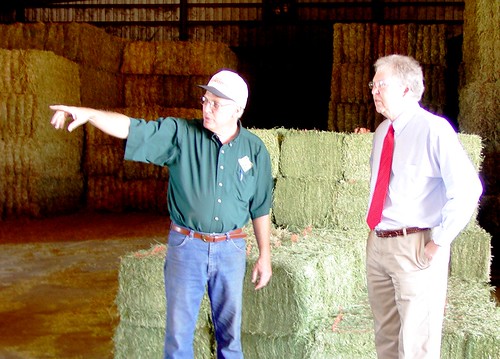
I recently joined David Fink, at his Heidel Hollow Farm in Germansville. The family-owned, 1600 crop acre hay farm was awarded two USDA Rural Energy for America Program (REAP) grants totaling $231,230. The grants will be used toward a solar energy project that will provide approximately 252,869 KW of electricity used in the hay compressing operation of the farm. David will also be able to replace one diesel engine with five electric motors, saving over 8,000 gallons of diesel fuel each year. Both projects will significantly reduce the farm’s energy costs.
Rural Development’s REAP grants to Heidel Hollow Farm are excellent examples of funding that contributes to making farm operations more energy efficient and economical. This funding for renewable energy projects helps rebuild and revitalize rural America.
REAP funding can be made in the form of grants, guaranteed loans and combination grant/guaranteed loans to help agricultural producers and rural small businesses purchase and install renewable energy systems and make energy-efficiency improvements in rural areas.
Some recent examples of other projects that received REAP grants in Pennsylvania are: a farm in northeastern Pennsylvania received a $71,964 grant and a $100,000 USDA guaranteed loan to build a greenhouse that will save significantly on annual energy costs; two farms in the western part of the state received grants of $67,750 and $19,990 to replace outdated and inefficient grain dryers with new high-energy efficient dryers; and a farm in northwestern Pennsylvania received $9,870 to install a new reverse osmosis machine that will significantly reduce the costs of making maple syrup by removing water from the maple sap. To find out more about how USDA programs can improve the bottom line of your farm or business click here.
